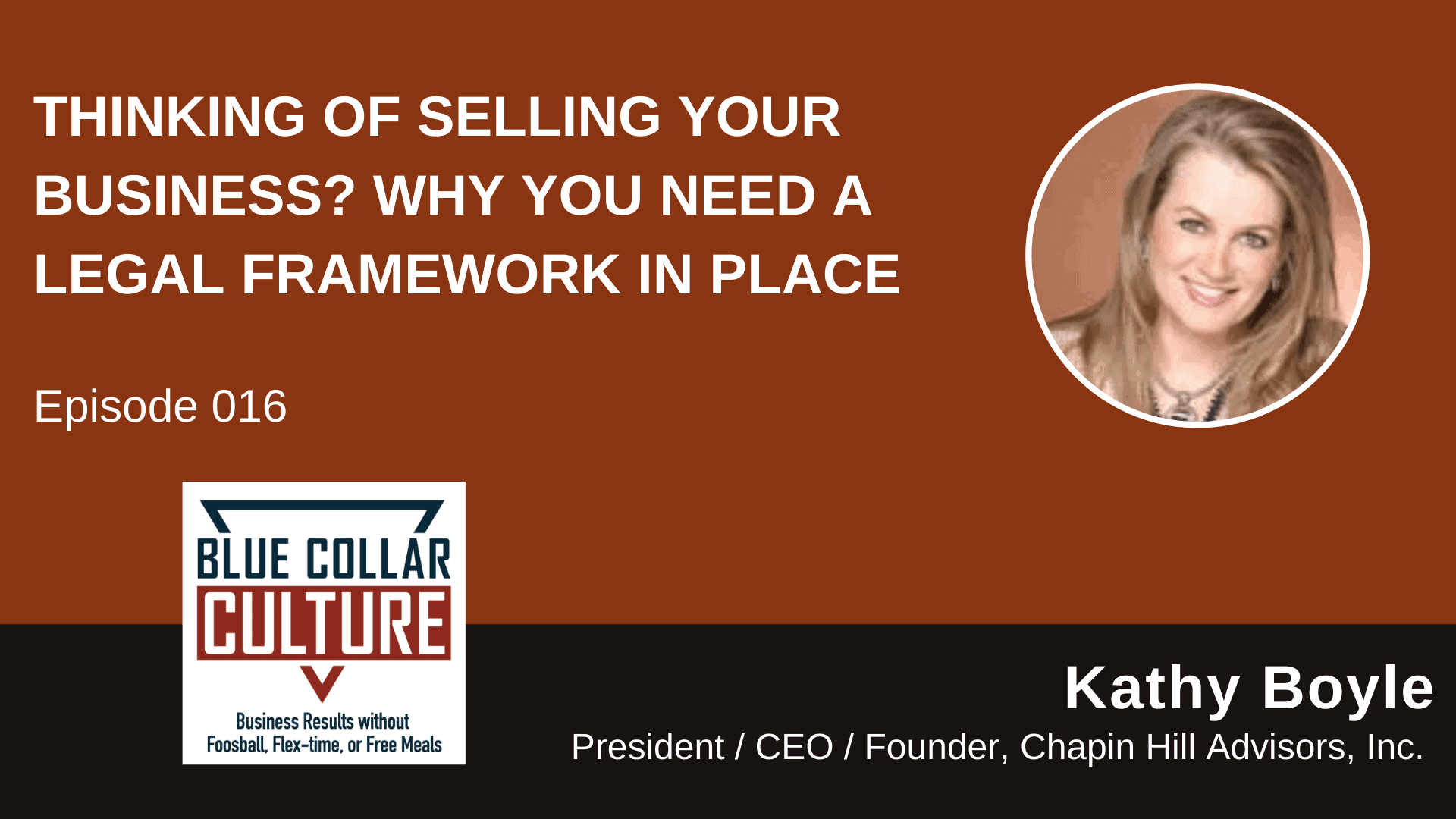In this episode of the Blue Collar Culture podcast, we chat with consultant and business planner Kathy Boyle. Kathy is the owner of Chapin Hill Advisors and focuses on the question on most business owners’ minds: “what happens when I don’t want to do this anymore?”
When it comes to succession planning, estate planning, and even personal planning, Kathy is here to help us break down some myths about getting out of the business. We can’t wait for you to hear all the valuable information we have in this episode!
We’ll chat with Kathy about the two biggest mistakes she sees business owners making, as well as…
- What exactly is M&A, and how does it impact a small business owner?
- The difference between boutique M&A firms and business brokers
- The importance of having a legal framework in place before selling your business
- And more
Listen now…
Mentioned in this episode:

